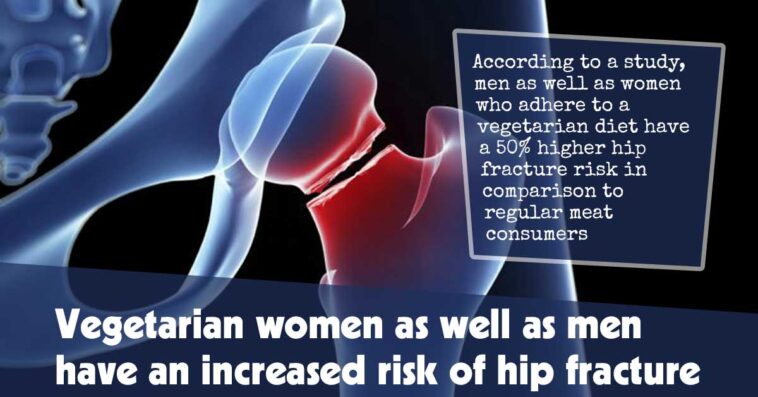Both Vegetarian Men and Women Face Higher Risk of Hip Fracture
Studies show that people following vegetarian diets have a 50% increased hip fracture risk compared to regular meat consumers.
Studies have established that vegetarian women have an increased hip fracture risk; however, the reasons for this remain elusive and research on its effect on men has been inconsistent and limited in scope.
In this study, data on 413,914 men and women was analyzed; results show that vegetarian men also have an increased hip fracture risk compared to meat-eating men, as well as factors that place vegetarians at greater risk of hip fractures.
Participants were part of the UK Biobank study and provided diet information; they were divided into regular meat eaters who consumed it five or more times every week, occasional meat eaters who ate less frequently, pescetarians who consumed fish but no meat, or vegetarians who avoided both meat and fish altogether.
Data was linked with hospital records, and hip fracture cases were documented during the monitoring period.
The study revealed: Whilst overall risks of hip fracture were low, those eating meat regularly experienced significantly greater relative risks than vegetarians.
Vegetarians were at 50% greater risk compared to regular meat eaters regardless of sex, with no distinction being seen in risk between frequent and occasional meat-eaters.
Pescatarians showed an 8% greater risk compared to regular meat-eaters but it did not reach statistical significance.
On average, it was projected that an estimated 6 occasional meat eaters, 6 regular meat eaters, 7 pescatarians and 99.5 vegetarians would experience hip fractures over the course of 2018.
Hip fractures are an increasing problem in an aging society and can lead to incapacitating health conditions and reduced quality of life.
This study indicates that vegetarians have an increased hip fracture risk by 50% compared to meat eaters; this only translates into three more fractures per 1000 individuals over 10 years.
Vegetarian diets offer numerous health advantages, such as decreased risks of cardiovascular disease and cancer. Any increases in hip fracture risk could still be offset by these benefits.
Analysis demonstrates that low BMI could play a significant role in increasing hip fracture risk.
Vegetarians were approximately 17% less likely to meet recommended protein intake guidelines compared to meat eaters. Therefore, it’s crucial that vegetarians eat a nutritious and well-balanced diet, with sufficient amounts of protein intake to achieve and maintain a healthy BMI.
